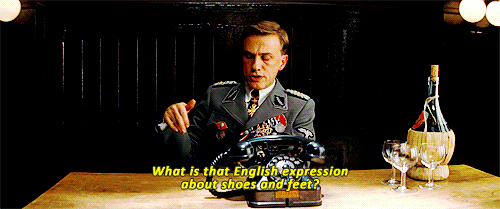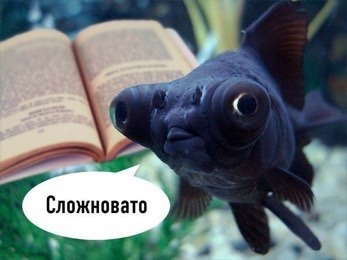Don't wanna be here? Send us removal request.
Photo

The giveaway post is finally here!
Alright, I’ve been here for over a year and I’ve been blessed to be surrounded by such kind and supportive people along the way, so I decided to make this giveaway as a thank you.
Rules and notes :
Everyone following me can enter
There will be two winners
The winners will be selected radomly
I’m willing to ship internationally
You can enter by reblogging but likes are also counted
The deadline for the giveaway is April 24th, 2018.
You must be willing to provide your shipping address (if you’re a minor, please make sure that you get permission)
The gifts will be :

Each winner will get :
An Arabic writing practice book (alphabets)
Children’s book (in Arabic + harakaat) with English translation
A simple Arabic grammar book (with harakaat)
A mini Emirati dialect phrasebook
A small note book
Key chains
If the winner is someone who started follow me, they will get a special bonus.
Good luck!
391 notes
·
View notes
Text
English: It fits like a glove. Spanish: It fits like a ring on the finger. Italian: It fits like shoes painted on with a brush.
Finnish: It fits like a . FiST. iN. the EYe . (ง'̀-‘́)ง
189K notes
·
View notes
Text
Turkish Youtubers
Hello! So I thought I could make a list of some Turkish youtubers for those of you who are learning Turkish and those who are watching videos in languages that they don’t even study like me Enjoy! ^-^
Info, school, technology:
Akıl Fikir Mektebi (Maths)
Barış Özcan (Info, technology)
Engin Hoja (Maths)
Fulya Hoca (Turkish literature)
Hasan Bir Öğretmen (Maths)
Hocalara Geldik (Physics, chem, counseling)
Kimya Özel (Chemistry)
MatAkademi (Maths)
Mesut Yazıcı (Turkish sign language)
Şenol Hoca (Maths)
Tonguç Akademi (Lessons & counseling for high school entrance exam)
Turkish people living/studying abroad:
Amerika’daki Türk (USA)
Komşuda TV (Greece)
Melis Eren (Greece) (her blog)
Çilem Akar (Spain, UK)
Çinde Okuyorum (China)
Make-up, DIY, shopping:
Asena Ermiş
Duygu’nun DIY Günlüğü
The Miraz
Polina Chursanova
Ceyhan Başlangıç
Görkem Karman
Booktubers:
Ayşe Kelce
Kitap Okuyan Solucan
Bookie Jar
Thinbooks
Fatih İlaslan
Süleyman Özcan
Eren Nadir Akşamoğlu
Fun:
Ağır Mimar (An architecture with funny memories & ideas, speaks fast :/)
Duru Önver (Story telling)
Hayrettin (Pranks)
Hayrettin 2 (Hayrettin’s meet up videos)
Oha Diyorum! (They try new and absurd things)
Onedio (Kinda ‘Turkish Buzzfeed)
Ecmel Soylu (She’s fun & doesn’t speak so fast)
515 notes
·
View notes
Quote
Gretchen: On the International Space Station, you have astronauts from the US and from other English speaking countries and you have cosmonauts from Russia. And obviously it’s very important to get your communication right if you’re on a tiny metal box circling the Earth or going somewhere. You don’t want to have a miscommunication there because you could end up floating in space in the wrong way. And so one of the things that they do on the ISS – so first of all every astronaut and cosmonaut needs to be bilingual in English and Russian because those are the languages of space. Lauren: Yep. Wait, the language of space are English and Russian? I’m sorry, I just said ‘yep’ and I didn’t really think about it, so that’s a fact is it? Gretchen: I mean, pretty much, yeah, if you go on astronaut training recruitment forums, which I have gone on to research this episode… Lauren: You’re got to have a backup job, Gretchen. Gretchen: I don’t think I’m going to become an astronaut, but I would like to do astronaut linguistics. And one of the things these forums say, is, you need to know stuff about math and engineering and, like, how to fly planes and so on. But they also say, you either have to arrive knowing English and Russian or they put you through an intensive language training course. But then when they’re up in space, one of the things that they do is have the English native speakers speak Russian and the Russian speakers speak English. Because the idea is, if you speak your native language, maybe you’re speaking too fast or maybe you’re not sure if the other person’s really understanding you. Whereas if you both speak the language you’re not as fluent in, then you arrive at a level where where people can be sure that the other person’s understanding. And by now, there’s kind of this hybrid English-Russian language that’s developed. Not a full-fledged language but kind of a- Lauren: Space Creole! Gretchen: Yeah, a Space Pidgin that the astronauts use to speak with each other! I don’t know if anyone’s written a grammar of it, but I really want to see a grammar of Space Pidgin.
Excerpt from Episode 1 of Lingthusiasm: Speaking a single language won’t bring about world peace. Listen to the full episode, read the transcript, or check out the show notes. (via lingthusiasm)
@wildehacked
(via wildehacked)
19K notes
·
View notes
Conversation
what people think linguistics is: i can speak 14 languages fluently
what linguistics actually is: god i love the consonant-vowel structure in polynesian languages
6K notes
·
View notes
Text
when u hear a group of people speaking a foreign language in public but u cant for the life of u figure out what language it is bc there is too much ambient noise

2K notes
·
View notes
Text
PENSER
For a regular -ER verb, the word “penser” can be tricky! Here’s what you need to remember:
Penser que - To express that you believe something is true. Note: when used in a question or negative structure, subjunctive is necessary.
Penser de - To express an opinion. Ex. Je veux te dire ce que je pense de ce livre.
Penser à - To consider, ponder, or reflect. Ex. “Pour être heureux, il faut penser au bonheur d'un autre”
Penser + infinitif - To think about or consider doing. Ex. Je pense apprendre le français!
3K notes
·
View notes
Text
movies for polyglots
7. Paris je t’aime (2006) various directors French | English | Spanish | Mandarin | Arabic

A compilation of shorts that all have to do with Paris. Every short has a different director and a different set of characters, so there is bound to be something for you.
6. Babel (2006) Alejandro González Iñárritu English | Spanish | Arabic | Japanese | Japanese sign language | Berber

Using the myth of the tower of Babel as a starting point, this movie revolves around miscommunication and the tragedy of becoming isolated as a human being.
5. Night on Earth (1991) Jim Jarmusch English | German | Italian | French | Finnish

A delightful movie in 5 instalments, all set in a different place, in a different language. The title says it all, one night on earth (more like one night in Europe but okay). Bonus young Winona Ryder.
4. Rush (2013) Ron Howard English | French | German | Italian

Although a movie about the rivalry between two Formula 1 drivers may initially not seem your thing, it manages to keep you on the front of your seat for the whole ride. Admittedly most of it is spoken in English but the spot-on casting certainly makes up for it. 3. Biutiful (2010) Alejandro González Iñárritu Spanish | Chinese | Wolof

A beautiful but inconsolably sad story about a father coming to terms with paternity, mortality and sacrifice in modern Barcelona. The cinematography in itself already makes this film worthwhile.
2. Plemya (2014) Myroslav Slaboshpytskiy Ukrainian sign language

Yes, this movie only contains one language but is nonetheless a must see for language lovers. This movie is entirely in sign language, no spoken word, no translations, no subtitles. Yet it tells a gripping story that is entirely understandable and shows the intricate world of body language. Fair warning: contains very graphic and explicit material, definitely not for the fainthearted.
1. Inglourious Basterds (2009) Quentin Tarantino English | German | French | Italian

This movie deserves to be number one since it actually highlights language idiosyncrasies in a wonderful and funny way. From a hair raising scene about German accents to a hilarious scene with Americans who think they know Italian, it’s a downright classic.
5K notes
·
View notes
Text
me, out of nowhere: I’m going to learn 5 languages at once, 30 minutes each day, soon I’ll be fluent and I’ll be able to travel the world!!
one day later: what was I thinking, that’s so unrealistic, I’ll never make it, I might as well give up
the day after that: I’m going to learn 5 languages at once, 30 minutes each day, soon I’ll be fluent and
5K notes
·
View notes
Conversation
using languages other than your native language like
reading: i am the avatar, capable of mastering all of the languages
writing: alright, yeah this isn't so bad
listening: whoa there partner i sure would appreciate if you could you say that at half speed and repeat it a couple of times for me
speaking: let me practice this 3 word sentence 20 times in my head and look up each word in the dictionary and make sure i have all the right forms before i ever say it to another human being
47K notes
·
View notes
Photo

Pronoms et non-binarité
Les différents pronoms qui existant à ce jour (à ma connaisance) sont résumés sur l’infographie ci-dessus ;) il y a donc : elle, il, im, em, ul, ol, iel, yel, ille, el et sans doute encore d’autres que je ne connais pas !
Pour résumer les principales caractéristiques de ces pronoms :
- il et elle sont les plus courants puisqu’utilisés par les personnes cis. Il s’agit donc de pronoms utilisés par des personnes “binaires”, mais il est tout à fait légitime qu’une personne non-binaire les utilise, même si c’est le pronom qui correspond à son genre assigné !
- iel est le pronom “non-binaire” le plus courant, il est utilisé par certaines personnes NB et également pour parler d’une personne dont on ne connaît pas le genre. Il ne convient cependant pas à tout le monde, notamment les personnes s’identifiant en dehors du spectre masculin-féminin, qui lui reproche d’être un “mélange” de il et elle. Il existe aussi une orthographe alternative, yel, prononcée de la même façon
- ul et ol sont souvent préférés par les personnes dont le genre est totalement extérieur aux notions de féminin et de masculin/ de femme et homme. Bien sûr ce n’est qu’une remarque, et si vous êtes demigirl mais que vous préférez utiliser ol, aucun problème !
- im et em ont l’avantage d’être “à moitié” proches des pronoms il et elle et peuvent convenir particulièrement bien aux personnes ayant un genre proche du masculin ou du féminin, ou ayant plusieurs genres dont homme ou femme. Ille et el ont aussi cet avantage, en plus de sonner comme les pronoms il et elle à l’oreille !
Tous ces éléments constituent des pistes de réflexions si vous souhaitez choisir quel pronom utiliser, mais nullement des règles ! Utilisez le pronom avec lequel vous êtes le plus à l’aise, et ne laissez personne vous dire que vous n’êtes pas légitime dans votre choix de pronom !
En ce qui concerne les accords, de même il n’y a pas de règle du type “avec iel il faut utiliser le neutre”, c’est à chacun de décider. Je vous renvoie vers mes autres posts sur le neutre en français pour voir les accords possibles :
- le neutre à l’oral
- le neutre à l’écrit
N’hésitez pas à enrichir ce post dans vos reblogs :)
579 notes
·
View notes
Text
French Grammar Masterpost
For easier browsing on this blog, here’s a post of all the grammar points posted or reblogged by this Tumblr, for easier access. These usually deal with intermediate/advanced grammar points, pulled from various sources :
C’est Or Il/Elle Est? - Here
Avoir + Agreement of Past Participle - Here
Using ‘Parce que’, ‘Car’, ‘Puisque’ and ‘Comme’ - Here
The Conjunctive Pronoun ‘En’ - Here
Use of Tenses with Depuis, Il y a and Pendant - Here
The Relative Pronouns of Qui and Que - Here
Le Versus Lui in French - Here
Use of ‘De’ Versus ‘Des’ in French - Here
Omission of Plural Indefinite ‘Des’ After ‘De’ - Here
The Different Words for ‘Number’ and How To Use Them - Here
Using ‘Quand-Meme’ in French - Here
French Subjunctive/Indicative - 1, 2
The Construction of Questions in French - Here
‘Then’ in French - Ainsi, Alors, Donc; Apres, Ensuite, Puis - Here
Use of the Definite Article and the Body - Here
Le Passe Compose Avec Y Et En - Here
Imparfait Versus Passe Compose - Here
Using ‘Enfin’ in French - Here
Using Mieux vs Meilleur - Here
Temporal Prepositions - Here
When Verb + De + Infinitive - Here
When Verb + A + Infinitive - Here
Time Based Nouns - Here
Demonstrative Determiners - Here
Proper Nouns in French - Here
Aspirated Hs / Le H Aspire - Here
Abstract Vs. Concrete Nouns - Here
‘Personnes’ Vs. ‘Gens’ in French - Here
Common French Mistakes:
Examples of French Mistakes - 1
French Vocabulary Lists:
50 Advanced French Phrases - 1, 2, 3
French Nationalities & Countries - Here
Marriage & Relationship Vocabulary - Here
Film & Television Vocabulary - Here
French & Italian Comparative: Family Vocab - Here
French & Italian Comparative: Places Vocab - Here
Personal Vocab Lists (Note to Self):
20 French Expressions - 1, 2, 3
Using French Slang:
Using ‘Foutre’ in French - Here
Using ‘Putain’ and ‘Merde’ Adjectively - Here
For all other miscellaneous French posts, the tag can be found: - Here
6K notes
·
View notes
Photo




k so i made this new russian friend at school this week and we were talking about memes, you know, as one does, and she was telling me about this underground russian meme where its pics of fish reading and saying shit like “i cant do this” and i thought it was the funniest fucking thing ive ever seen in my life so here u go. in order, theyre saying “help”, “disaster”, “pretty difficult”, and “it’s hard for me”
100K notes
·
View notes
Text

A lot of people are unaware of the long and rich history between the countries of Scotland and France. During the 13th century, the leaders of Scotland were searching for alliances in their struggles against England. Scotland was very politically instable following the death of the king and his heirs. It was decided that it would be beneficial if they could form an alliance with another enemy of England, and France was a perfect fit. The Treaty of Paris formalised a pact known as ‘The Auld Alliance’ in 1295, and although the Auld Alliance no longer exists the two countries continued to have strong relations throughout history, and this is particularly shown in how the French language had an effect on the Scots language.

‘Hogmany’ is the New Year celebration in Scotland, famous for its particular traditions but even this word has etymological roots in French. ‘Hogmany’ comes from the French hoguinané which is the Norman French word for the Old French aguillanneuf meaning ‘the last day of the year’.
Even some Scots sayings are just derivations of the French. For example, many Scots people say ‘san ferry ann’ to mean ‘it doesn’t matter’, and this is just a Scots twist on the French ‘ça ne fait rien’. It really is amazing some of the links that you can make if you can understand Scots and French.
1K notes
·
View notes
Text
Blind people gesture (and why that’s kind of a big deal)
People who are blind from birth will gesture when they speak. I always like pointing out this fact when I teach classes on gesture, because it gives us an an interesting perspective on how we learn and use gestures. Until now I’ve mostly cited a 1998 paper from Jana Iverson and Susan Goldin-Meadow that analysed the gestures and speech of young blind people. Not only do blind people gesture, but the frequency and types of gestures they use does not appear to differ greatly from how sighted people gesture. If people learn gesture without ever seeing a gesture (and, most likely, never being shown), then there must be something about learning a language that means you get gestures as a bonus.
Blind people will even gesture when talking to other blind people, and sighted people will gesture when speaking on the phone - so we know that people don’t only gesture when they speak to someone who can see their gestures.
Earlier this year a new paper came out that adds to this story. Şeyda Özçalışkan, Ché Lucero and Susan Goldin-Meadow looked at the gestures of blind speakers of Turkish and English, to see if the *way* they gestured was different to sighted speakers of those languages. Some of the sighted speakers were blindfolded and others left able to see their conversation partner.
Turkish and English were chosen, because it has already been established that speakers of those languages consistently gesture differently when talking about videos of items moving. English speakers will be more likely to show the manner (e.g. ‘rolling’ or bouncing’) and trajectory (e.g. ‘left to right’, ‘downwards’) together in one gesture, and Turkish speakers will show these features as two separate gestures. This reflects the fact that English ‘roll down’ is one verbal clause, while in Turkish the equivalent would be yuvarlanarak iniyor, which translates as two verbs ‘rolling descending’.
Since we know that blind people do gesture, Özçalışkan’s team wanted to figure out if they gestured like other speakers of their language. Did the blind Turkish speakers separate the manner and trajectory of their gestures like their verbs? Did English speakers combine them? Of course, the standard methodology of showing videos wouldn’t work with blind participants, so the researchers built three dimensional models of events for people to feel before they discussed them.
The results showed that blind Turkish speakers gesture like their sighted counterparts, and the same for English speakers. All Turkish speakers gestured significantly differently from all English speakers, regardless of sightedness. This means that these particular gestural patterns are something that’s deeply linked to the grammatical properties of a language, and not something that we learn from looking at other speakers.
References
Jana M. Iverson & Susan Goldin-Meadow. 1998. Why people gesture when they speak. Nature, 396(6708), 228-228.
Şeyda Özçalışkan, Ché Lucero and Susan Goldin-Meadow. 2016. Is Seeing Gesture Necessary to Gesture Like a Native Speaker? Psychological Science 27(5) 737–747.
Asli Ozyurek & Sotaro Kita. 1999. Expressing manner and path in English and Turkish: Differences in speech, gesture, and conceptualization. In Twenty-first Annual Conference of the Cognitive Science Society (pp. 507-512). Erlbaum.
79K notes
·
View notes
Photo

Learning Norwegian
Norwegian Teacher - Karin ♡
Learn Norwegian Naturally ♡
That Norwegian Guy ♡
Norwegian Class 101
Michelle Alexandra
Beauty/Lifestyle Vloggers
Johanna Sofie ♡
Amalie Olsen ♡
Kristine Bremnes ♡
Nora Berntsen ♡
Anniken Gjørøy ♡
Hanna-Martine
Stina Blogg
Emma Ellingsen
Celina Karine
Agnes Lovise
Anna Birgis
Erin Bakke
Emma Bråthen
Gaming
Noobwork
Baibai & Huginn
Gutterommet
Prebz og Dennis
Pranks
FreddyFairhair ♡
663 notes
·
View notes
